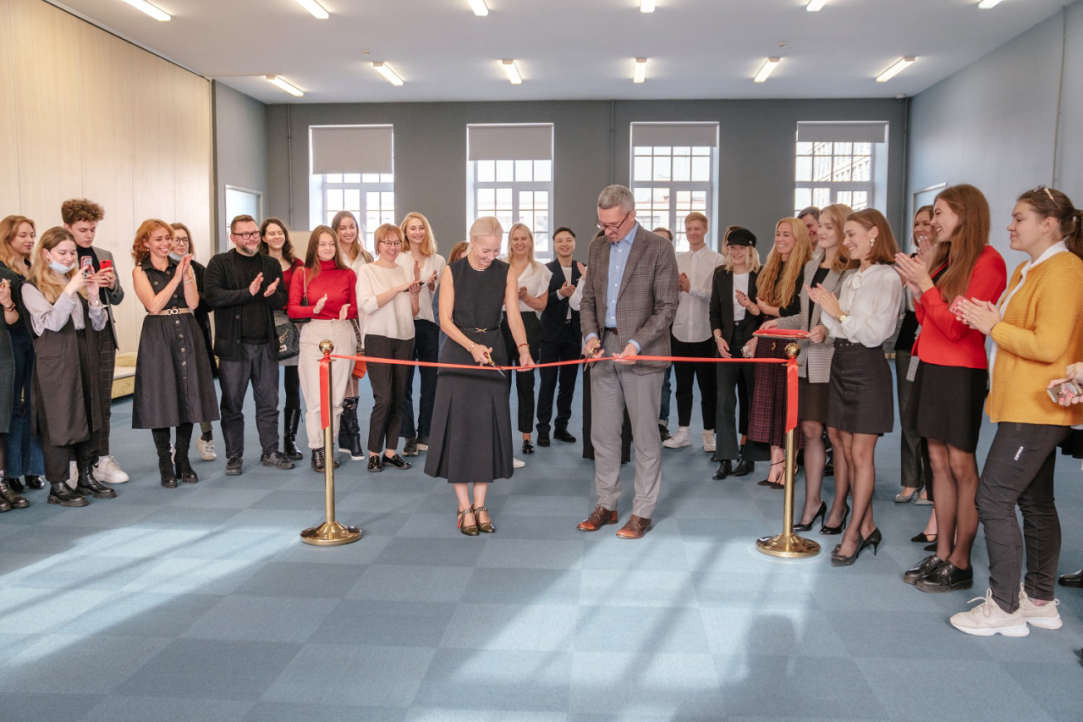
Two-handed Movements Require More Neural Effort As People Grow Older
A team of researchers from Max Planck Institute for Human Cognitive and Brain Sciences (Leipzig) has discovered that the age-related decline in bilateral anti-phase movement is linked to differences in alpha and beta neural activity. Among the researchers was Vadim Nikulin, Leading Research Fellow of the Centre for Cognition & Decision Making at HSE University.
.jpg)
HSE ISSEK Researchers Analyse Opportunities for Scientific Cooperation between Developing Countries in BRICS + Global South Format
Volume of R&D funding and number of Scopus-indexed publications of the BRICS countries in total already exceed those of the EU-total and the United States. These metrics have opportunity for further growth if the five developing countries strengthen scientific cooperation with other countries from Global South that have significant growth potential. Researchers from the Institute for Statistical Studies and Economics of Knowledge Alexander Sokolov, Sergey Shashnov, and Maxim Kotsemir analysed the opportunities for research collaboration within these clusters of countries along with the obstacles standing in the way of greater cooperation.

‘It Used to Be Difficult without an Electronic Archive’
Storing the data collected during folklore expeditions in a convenient and accessible way is not an easy task. As a solution, HSE researchers studying folk traditions have created an Electronic Folklore Archive. Anastasia Smirnova, research assistant and, until recently, staff member of the HSE Faculty of Humanities Laboratory for Theoretical and Field Folklore Studies, where the electronic archive was designed and developed, talks about how it was created and why the skills of collecting and digitising folklore are so important, particularly at the outset of one's academic career.
‘Expeditions Give Students a Chance to Experience Field Work’
The student research expedition of the Graduate School of Urbanism has concluded its field work in the Sovetsko-Gavansky region. The data collected will form the basis of a booklet about the main features of the region’s urban space. Other outcomes of the expedition include a preprint of a research publication and the creation a systematized database with metadata on collection methodology.

Scientists Teach AI to Predict Bankruptcy
Researchers of the HSE Graduate School of Business have presented a new method of forecasting bankruptcies in businesses using machine learning. The method makes it possible to fully utilize information on a company’s financial state and to make more accurate predictions than traditional statistical approaches. The research has been published in the journal Expert Systems with Applications.

HSE University Researchers Explain Behaviour of Chaotic Systems
Researchers of the Laboratory of Complex Systems Modeling and Control have proposed a missing component of the mechanism of self-organized criticality, which will enable the reproduction of power-law patterns observed in the real world. According to the researchers, this can be used to improve our understanding of the the processes leading to strong earthquakes, forest fires, financial market crashes, and a sudden synchronization of social networks. The results of the research were published in the Scientific Reports journal.

Higher Education Protects Women from Gender-based ‘Penalties’
Women typically earn 18%-20% less than men do with the same education, profession and personal characteristics, researchers from the Higher School of Economics found using data from an employment survey of young personnel. What’s more, this income gap has a cumulative effect, growing wider the longer a woman works. Education, however, significantly compensates for this ‘penalty’. IQ.HSE examined this issue with the help of a study by Margarita Kiryushina and Victor Rudakova.

HSE University – St Petersburg Launches Joint Projects with the Maison Cartier
Within the framework of the ‘Cartier & HSE: the Future is Youth’ meeting, a presentation dedicated to the partnership between the HSE campus in Saint Petersburg and a world-famous luxury jewellery house took place with the participation of Yanina Novitskaya, Managing Director of Cartier in Russia, Ukraine, and the CIS, and Sergey Kadochnikov, Director of the HSE Campus in St Petersburg.

The Psychosocial Risks of Distance Working
The project team ‘Regulatory framework to prevent remote work-related psychosocial risks’ of the HSE University Faculty of Law has held an interdisciplinary online workshop to discuss the possible psychosocial risks faced by telecommuters. Participants learned more about the preliminary results of a survey conducted among Russians in summer 2021. In addition, guest experts from French and German universities spoke about EU countries’ experiences in preventing psychosocial risks.

Long-Term Care Systems: How to Help the Ageing Population
The number of people in need of long-term care will grow globally due to an ageing population. Russia is no exception. This is why the state is facing the task of creating an effective system of care for people who need it. At a workshop at HSE University, experts discussed how to model such systems and forecast their load.

